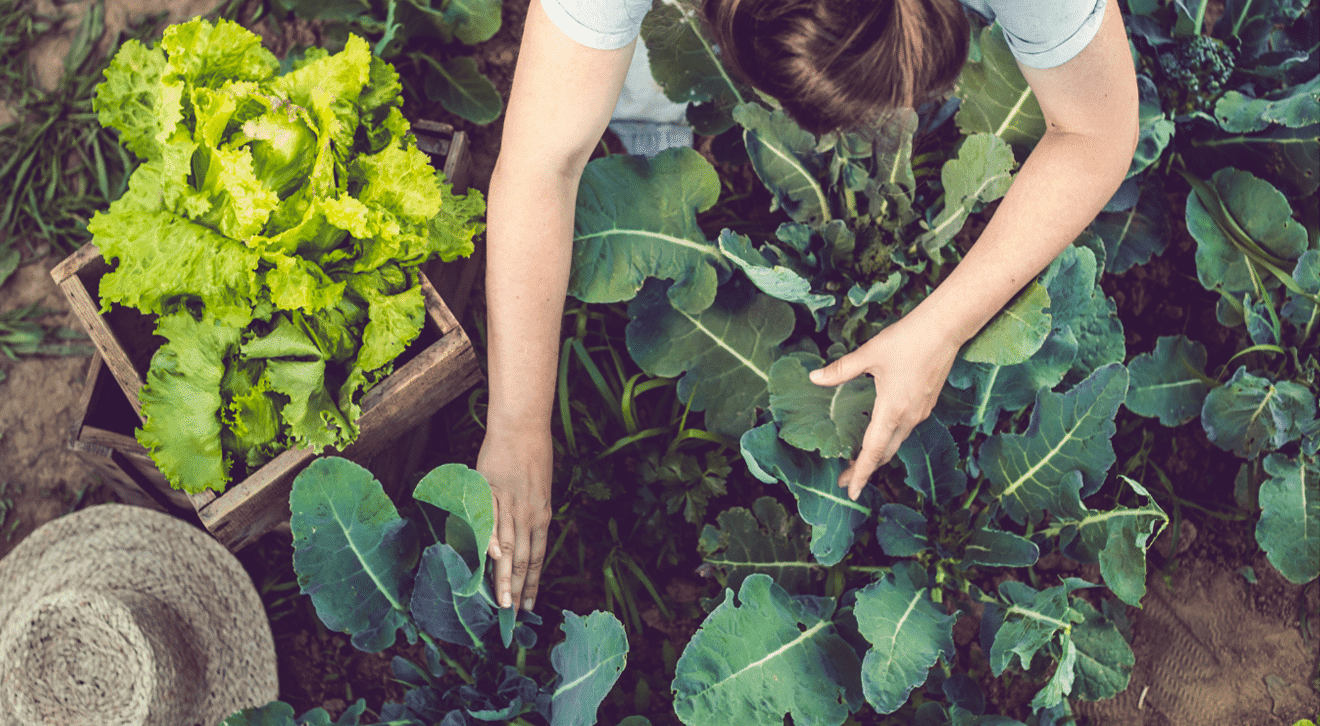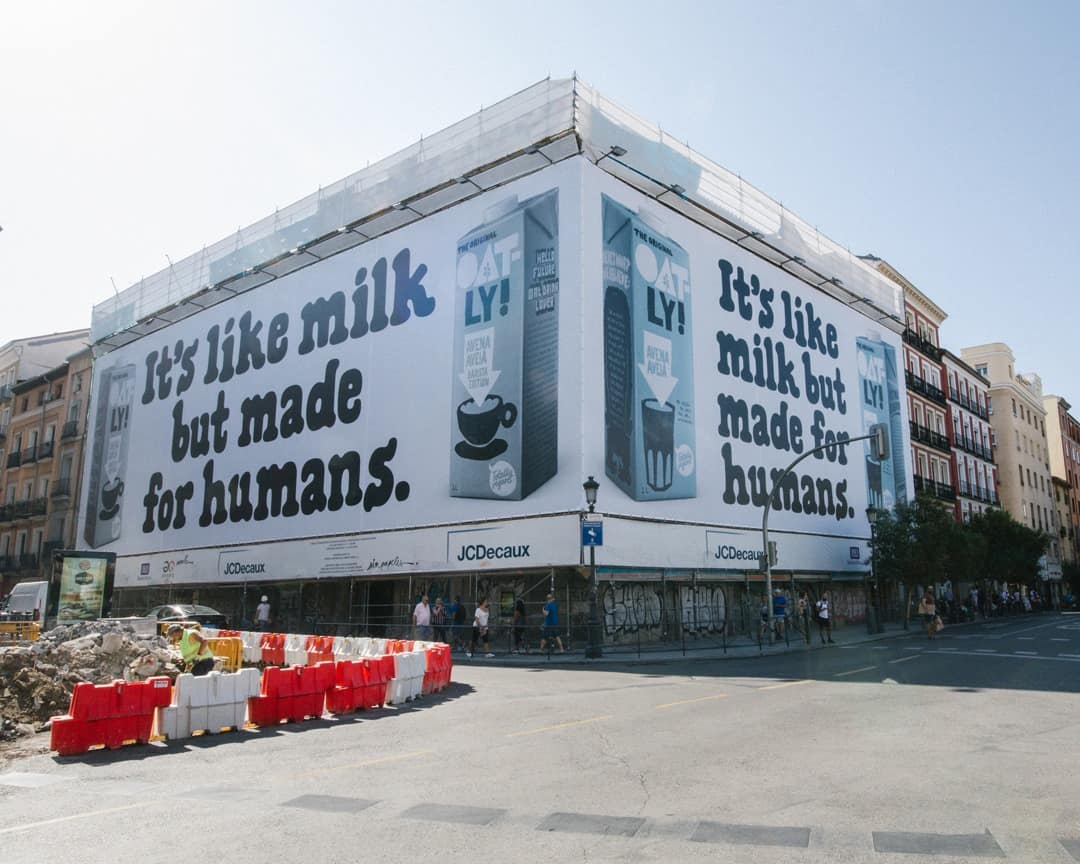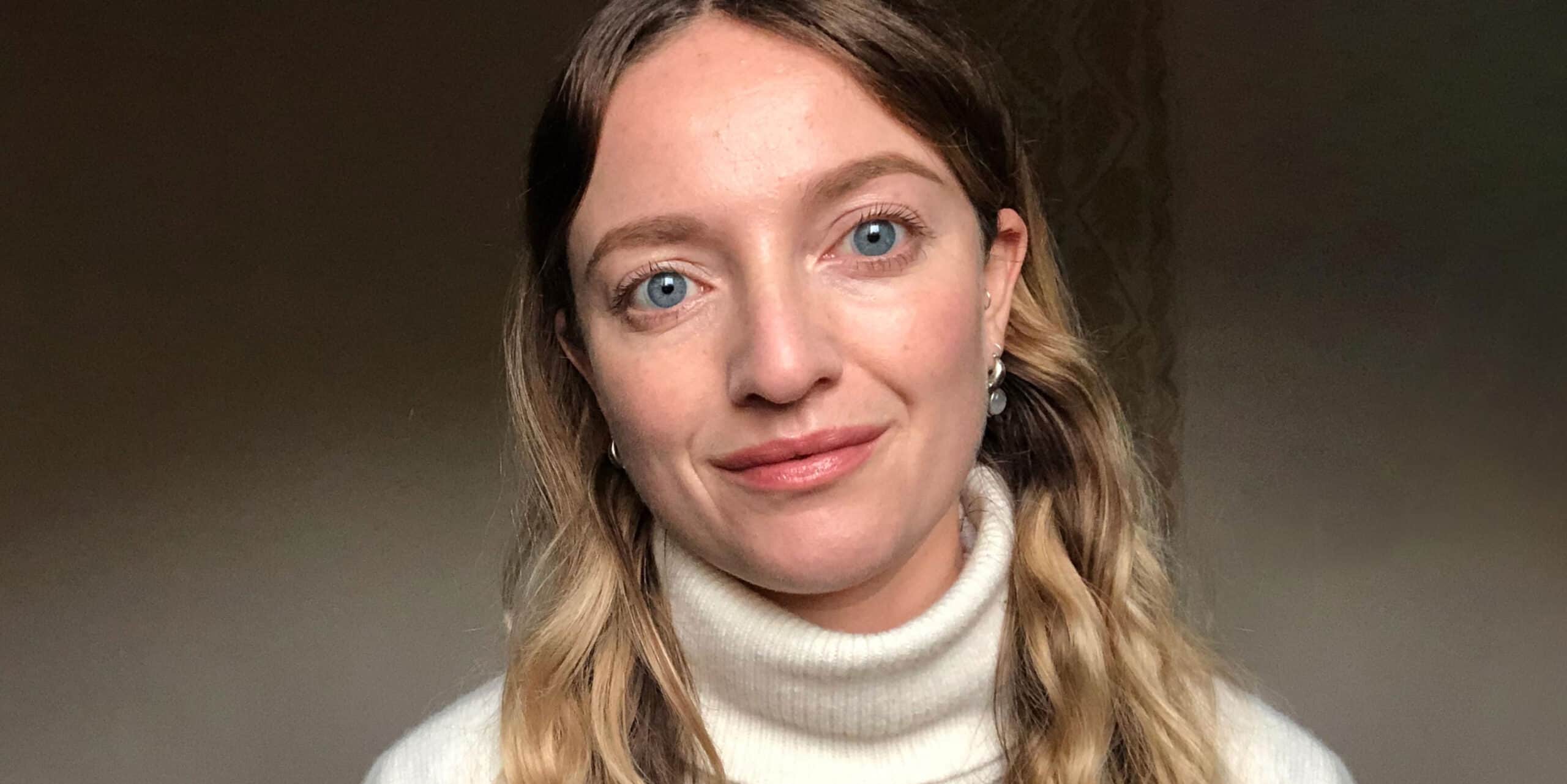Shaunagh Duncan, Head of Sustainability at Oatly UK and Marisa Heath, Chief Executive, Plant-Based Food Alliance UK, spent some time discussing their insights into sustainability, the UK’s food strategy, the school milk campaign, and driving the systemic shift towards plant-based in order to avoid climate disaster.
What is your opinion on the recent UK government’s food strategy?
Shaunagh Duncan: It is incredibly disappointing that the Government’s food strategy lacked any mention of plant-based products and made no recommendations around the reduction of dairy and meat consumption. We had hoped to hear new plans for all school children to be given access to a vegan school meal option, but this was also not included.
Food production is responsible for a third of global GHG emissions – with more than half coming from animal production (1). And it’s not even working for us. Around the world, basic nutritional needs often go unmet.
The Climate Change Committee recommends a 20% reduction in meat and dairy by 2030 and a 35% reduction in meat by 2050. Eating a predominantly plant-based diet is not the whole answer, but encouraging this shift through the Government’s Food Strategy would have been an important step in the right direction.

Marisa Heath: The Food Strategy White Paper ignores the potential that plant-based foods offer to progress the Government’s climate and health objectives. With just over a quarter of the UK population already describing themselves as flexitarian, it is inevitable that plant-based food will be a part of the future food landscape. The Food Strategy should have created an opportunity to become an international leader in the shift towards plant-based. The benefits could include the reduction of greenhouse gas emissions, the creation of more economic opportunities and of course improved food security and sustainability which are Government priorities. This is the most pivotal time to make real change to our food systems for the sake of the environment, the economy and the people, yet the opportunity has not been grasped.
The Climate Change Committee report has urged the Government to encourage consumers to eat less dairy and meat. How achievable is this?
Shaunagh Duncan: It is absolutely achievable for the UK to significantly reduce its consumption of animal products. With or without government support, consumer habits have long been shifting in this direction. In Europe alone, 40% of consumers are actively reducing their consumption of animal-based products (either identifying as flexitarian, pescetarian, vegetarian, or vegan)(2). Demand is rapidly increasing and with the right guidance in place from the Government to match, a real shift in the food system is achievable.
“the Government needs to actually map out a plan for the reduction of meat and dairy consumption”
Marisa Heath: In order to meet our net zero goal by 2050, the Government needs to actually map out a plan for the reduction of meat and dairy consumption. Alongside this, they need to ensure that public entities like hospitals and schools are reducing meat and dairy on their menus and are providing plant-based options. Finally, the way that food is subsidised needs to be changed. We need to see support for the production of more plant-based food including legumes, nuts, vegetables, fruits and whole grains which will improve supply and lower costs.

The Climate Change Committee report states that meat and dairy production requires more land and produces more emissions than plant-based alternatives. How are plant-based alternatives better for the environment?
Shaunagh Duncan: In general, animal-based products have a higher environmental impact than plant-based products (3). Take beef, for example, the most commonly consumed ruminant meat. The World Resources Institute estimates it requires 20 times more land and emits 20 times more GHGs per gram of edible protein than common plant proteins, such as beans, peas and lentils (4).
And yet – consumption of ruminant meat is projected to rise 88% between 2010 and 2050. And more than 80% of the world’s population still regularly consumes cow’s milk or other dairy products(5).
“It is imperative that we revolutionise our food systems to help cut down on emissions.”
It is imperative that we revolutionise our food systems to help cut down on emissions. Measures like making it mandatory for all food and drink companies to publish products’ carbon footprint on packaging, for example, would help inform consumers and encourage this much needed switch.

Marisa Heath: Whilst cutting down on meat and dairy does reduce emissions, it is not the only reason why plant-based alternatives are better for the environment. The impact of livestock farming systems on carbon sequestration, soil acidification, water quality, and broader ecosystem services are also significant. A serious issue that relates to meat and dairy production is the amount of land it uses. Meat and dairy production is the single largest driver of ecosystem damage. This is due to the conversion of land into pastures and cropland to produce animal feed as well the toll on the environment that is taken by keeping the animals.
Animal agriculture takes up 77% of all agricultural land on Earth despite supplying only 17% of humanity’s food supply (6). This destroys habitats and biodiversity and means the land is not playing its vital role. Plant-based diets use significantly less land, some even estimate this to be 75% less, much less fresh water and uses crops that put nitrogen back into the soil – improving its quality.(7)
What can brands like Oatly do to help consumers make the switch to plant-based more easily?
Shaunagh Duncan: To help consumers make the switch to plant-based, products need to be widely available and should not require any compromise on taste, performance or nutrition. The plant-based sector is rising to this challenge, with new innovations entering the market all the time. This momentum means it’s never been easier for consumers to find plant-based alternatives – on shelves, on public transport, and in restaurants – and make those shifts towards a more plant-based diet.

At Oatly, we recently launched the ‘Mini Barista’ – a smaller 500ml edition of our #1 best-selling product; the Oat Drink Barista Edition. By making it as easy as possible for consumers to give plant-based a try, this new product is the perfect stepping stone into the category.
Tell us a little about Oatly’s sustainability strategy. How sustainable is the oat crop and the manufacture/shipping of the products globally?
Shaunagh Duncan: We want to help drive a systemic shift — in the ways people eat, food is produced, and the planet is treated — where people can make small changes, like switching to plant-based foods, that improve their lives and help to ensure a healthy planet for future generations. You can read more about this in our 2029 Sustainability Plan.
We also recently published an update on how those plans were coming along. Growing as a business comes with its challenges, but we did some great work against our global sustainability ambitions including sourcing 100% renewable electricity for the first time for our two North American factories and repurposing 100% of our oat fibre residue.
“Our aim is to source 100% regenerative oats by the year 2029”
In the UK specifically, we’re investing in developing a regenerative sourcing framework to incentivise farmers to implement environmental practices. Our aim is to source 100% regenerative oats by the year 2029, and we’re starting now. We think both the Government, and companies like Oatly, have a huge role to play in working with farmers to make it possible to transition to more sustainable practices.

What is the current Oatly portfolio and which are the biggest sellers? What will be the next NPDs?
Shaunagh Duncan: Our UK portfolio spans a wide range of products, including whole, semi and skinny oat drinks to the number one bestseller, Oat Drink Barista Edition and the newest member of the Oatly family, the ‘Mini Barista’ Edition. In addition, there is also a range of creamy Oatgurts and four flavours of Ice Cream.
Oatly recently partnered with Impossible Foods and Starbucks in Hong Kong – are there any similar partnerships in the pipeline?
Shaunagh Duncan, Head of Sustainability UK Oatly: We’re always exploring new partnerships that will help us reach new audiences in even more locations and spread the plant-based revolution. For example, Oatly recently partnered with Espresso House – the largest coffee chain in the Nordics – and our products are now served at all Espresso House café locations across the Nordics and Germany.
Why is the School Milk campaign important to Oatly? How has the ad campaign been received?
Shaunagh Duncan: There is an EU public consultation happening right now on the provision of fruit, vegetables and cow’s milk products served to children in schools across Europe. Each year, this scheme subsidies an average 160 million litres of cow’s milk to children.

The current lack of support for plant-based drinks is restricting choice for children who cannot or do not want to drink cow’s milk for medical, ethical, environmental, religious or other reasons. Adding plant-based drinks to the scheme would provide choice, contribute to tackling climate change, and promote sustainable eating habits among children at an age when their eating habits are being formed.
We’re raising awareness of this through a campaign across Sweden, Finland, Austria, The Netherlands, Belgium and Spain. And it looks like the message is getting through. More than 57,000 people have supported ProVeg International’s petition so far.
- a) Crippa, M., Solazzo, E., Guizzardi, D., Monforti-Ferrario, F., Tubiello, F. N., & Leip, A. J. N. F. (2021). Food systems are responsible for a third of global anthropogenic GHG emissions. Nature Food, 2(3), 198-209. https://doi.org/10.1038/s43016-021-00225-9
- ProVeg Corporate. 2022. Amplifying farmers’ voices | ProVeg Report. [online] Available at: <https://corporate.proveg.com/report/amplifying-farmers-voices/>
- Citations: a) Poore, J., & Nemecek, T. (2018). Reducing food’s environmental impacts through producers and consumers. Science, 360(6392), 987-992. (With additional calculations for the BBC’s food calculator provided by J. Poore on oatmilk, almond milk, and rice milk.)https://doi.org/10.1126/science.aaq0216 (can produce upon request) b) Multiple Oatly Carbon Cloud analyses for Europe: Oatly Barista Edition UK/British cows milk 3% fat; Oatly Barista edition Finland/Finnish cow’s milk; Oatly original Sweden/Swedish cow’s milk 1,5 % fat (Can produce upon request)
- World Resources Institute (WRI) (2019). Creating a Sustainable Food Future. A Menu of Solutions to Feed Nearly 10 Billion People by 2050. How to Sustainably Feed 10 Billion People by 2050, in 21 Charts | World Resources Institute (wri.org)
- DF – IDF is the leading source of scientific and technical expertise for all stakeholders of the dairy chain. 2022. Dairy’s Global Impact – IDF – IDF is the leading source of scientific and technical expertise for all stakeholders of the dairy chain. [online] Available at: <https://fil-idf.org/dairys-global-impact/> [Accessed 18 July 2022].
- ProVeg Corporate. 2022. Amplifying farmers’ voices | ProVeg Report. [online] Available at: <https://corporate.proveg.com/report/amplifying-farmers-voices/>
- Crippa, M., Solazzo, E., Guizzardi, D., Monforti-Ferrario, F., Tubiello, F. N., & Leip, A. J. N. F. (2021). Food systems are responsible for a third of global anthropogenic GHG emissions. Nature Food, 2(3), 198-209. https://doi.org/10.1038/s43016-021-00225-9
- Roser M, Ritchie H. Yields and land use in agriculture. In: OurWorldInData.org [Internet]. 2019 [cited 6 Jun 2019]. Available: https://
org/yields-and-land-use-in-agriculture





